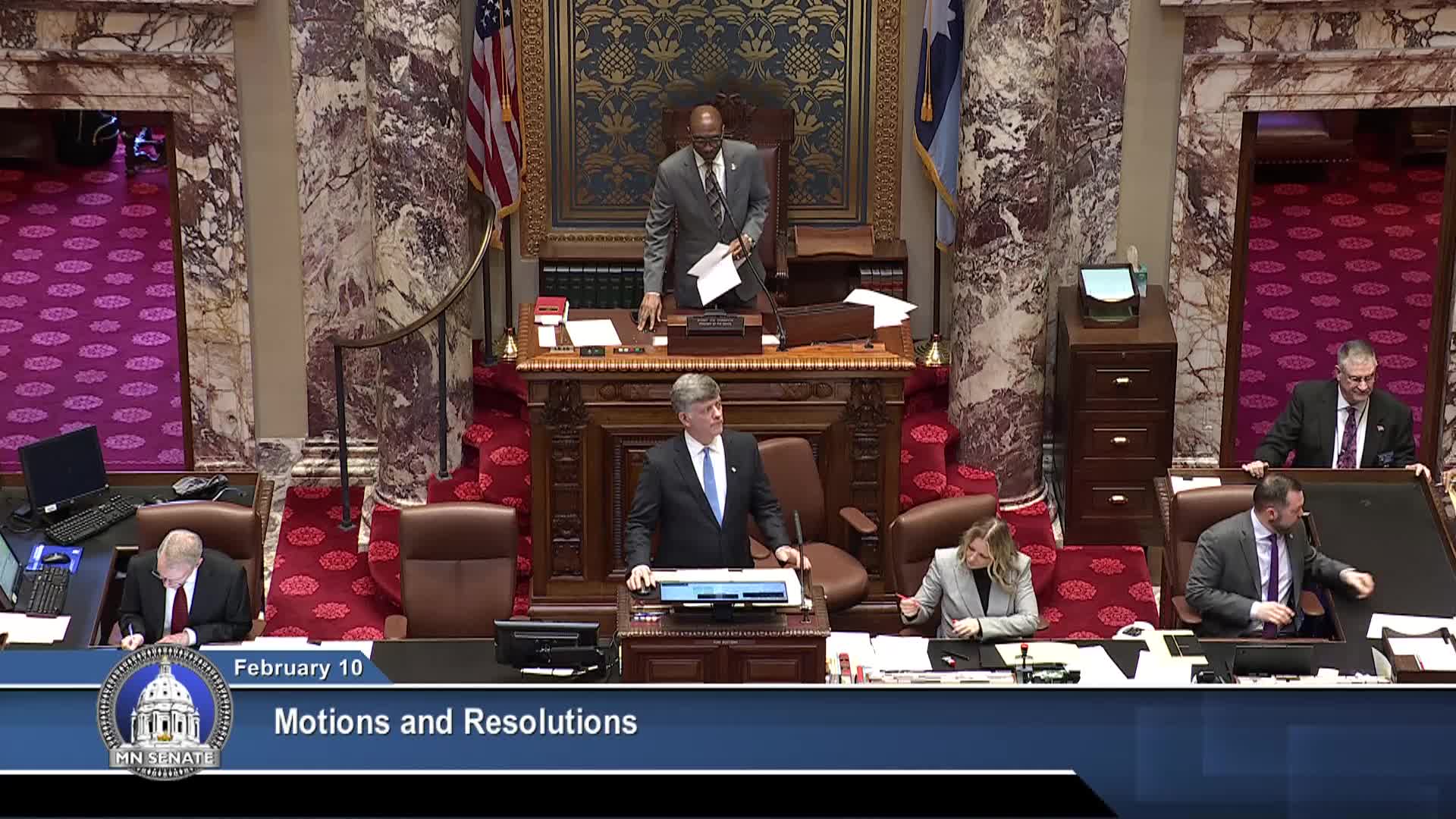Senate takes up real property rewrite: partition, eminent domain appeals, transfers-on-death amendments on third reading
Get AI-powered insights, summaries, and transcripts
Subscribe
Summary
Senate File 202, a comprehensive rewrite of Minnesota partition law plus technical changes on eminent domain appeals and transfers-on-death deeds, received floor presentation and was taken up for third reading; sponsors said the bill reduces costs and modernizes procedures but the transcript does not record a final passage tally.
Senators debated and advanced Senate File 202, a multi-part real-property bill that rewrites Minnesota’s partition law, clarifies procedures in eminent domain appeals, and makes targeted changes to transfers-on-death deeds.
On the floor, the bill presenter described partition of real property as the division of co-owned land, explained the bill would modernize the Partition Act, and said the measure permits a single referee (rather than three), allows real estate agents to serve as referees with compensation by commission in some cases, and makes partition-by-sale more likely by changing defaults. ‘‘What this bill essentially does is it makes this a more user friendly process to actually make partition a realistic option for property owners in Minnesota,’’ the presenter said, arguing the change would be less expensive and more efficient.
The bill also contains technical clarifications for eminent domain appeals to limit service and appeals to only parcels actually on appeal and to allow electronic service, which sponsors said will reduce cost and burden when multiple parcels are involved. On transfers-on-death deeds, sponsors said the bill makes some 2024 changes retroactive to correct an oversight, while leaving an insurance provision negotiated with the insurance federation nonretroactive.
Senators asked questions on the floor and the presenter thanked Kevin Dunlevy of the Minnesota State Bar Association’s real property section for long-running assistance in drafting the measure. The secretary gave the bill its third reading and members were ordered to vote; the provided transcript records the role call being taken but does not capture a final recorded vote tally or the Senate’s final disposition of the bill within the excerpt.
If enacted, the partition provisions would change default remedies and introduce new options intended to lower costs for co-owners seeking partition. Sponsors said the changes reflect practice and aim to provide judges a clearer framework for case-by-case discretion.
The transcript records the bill presentation, questions, and the start of roll-call voting for third reading; the final outcome (passage or failure) is not shown in the excerpt provided.
